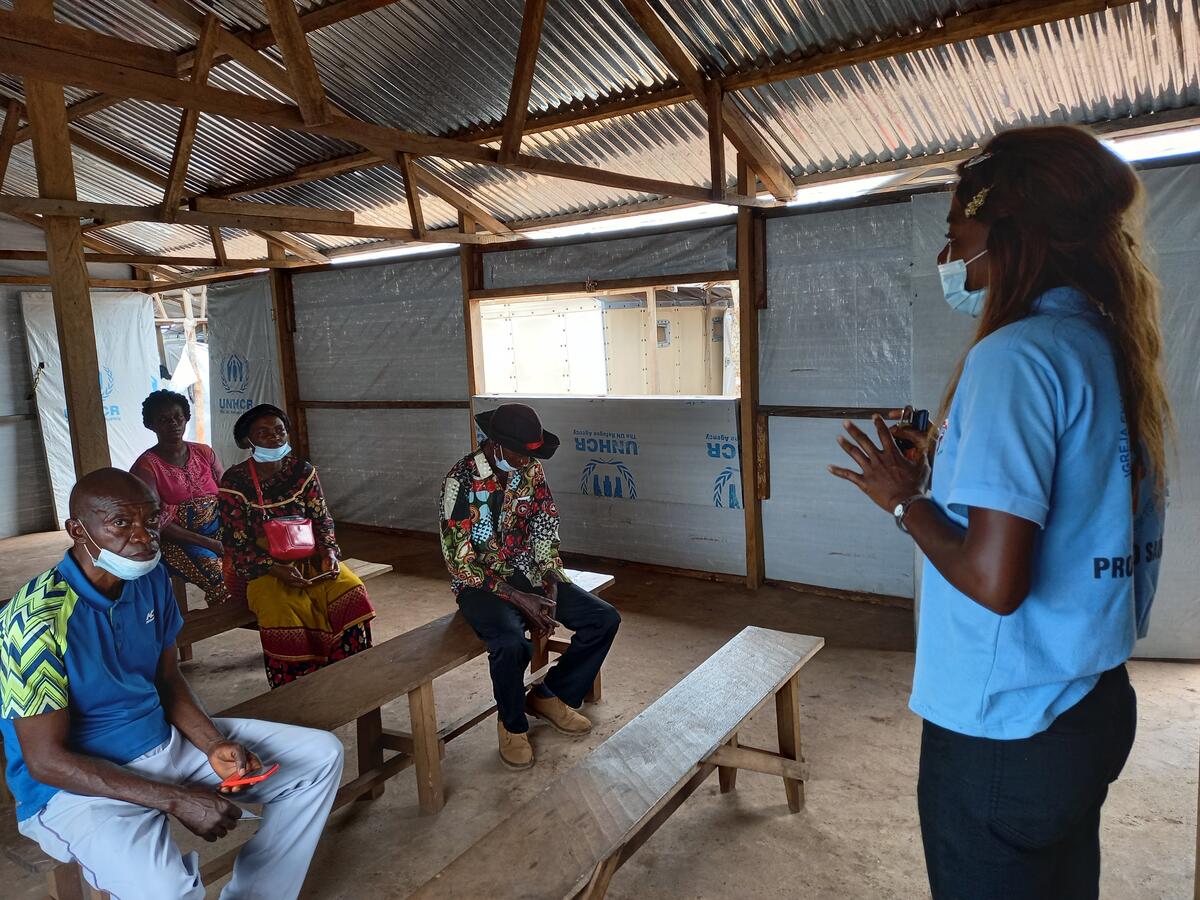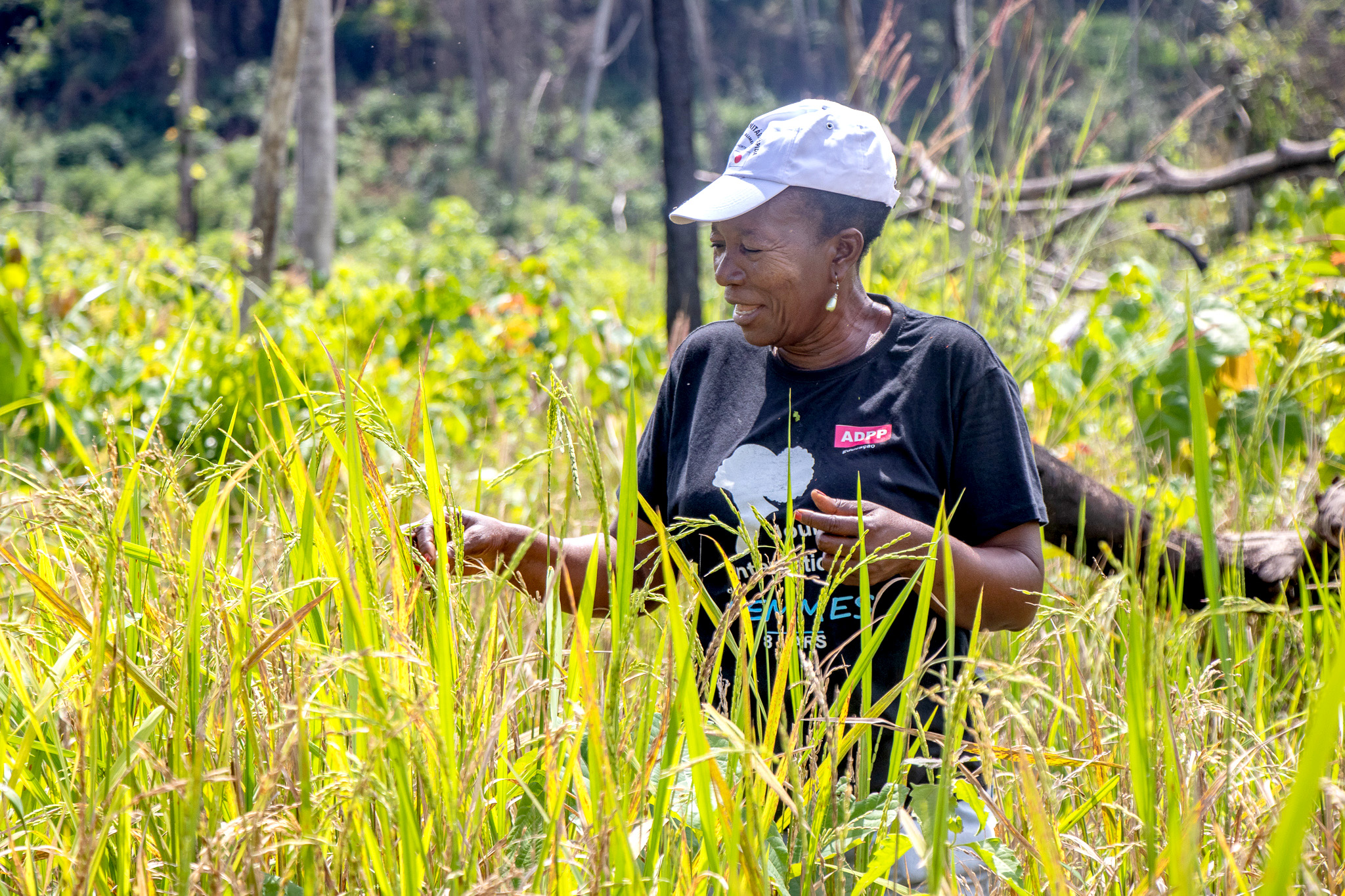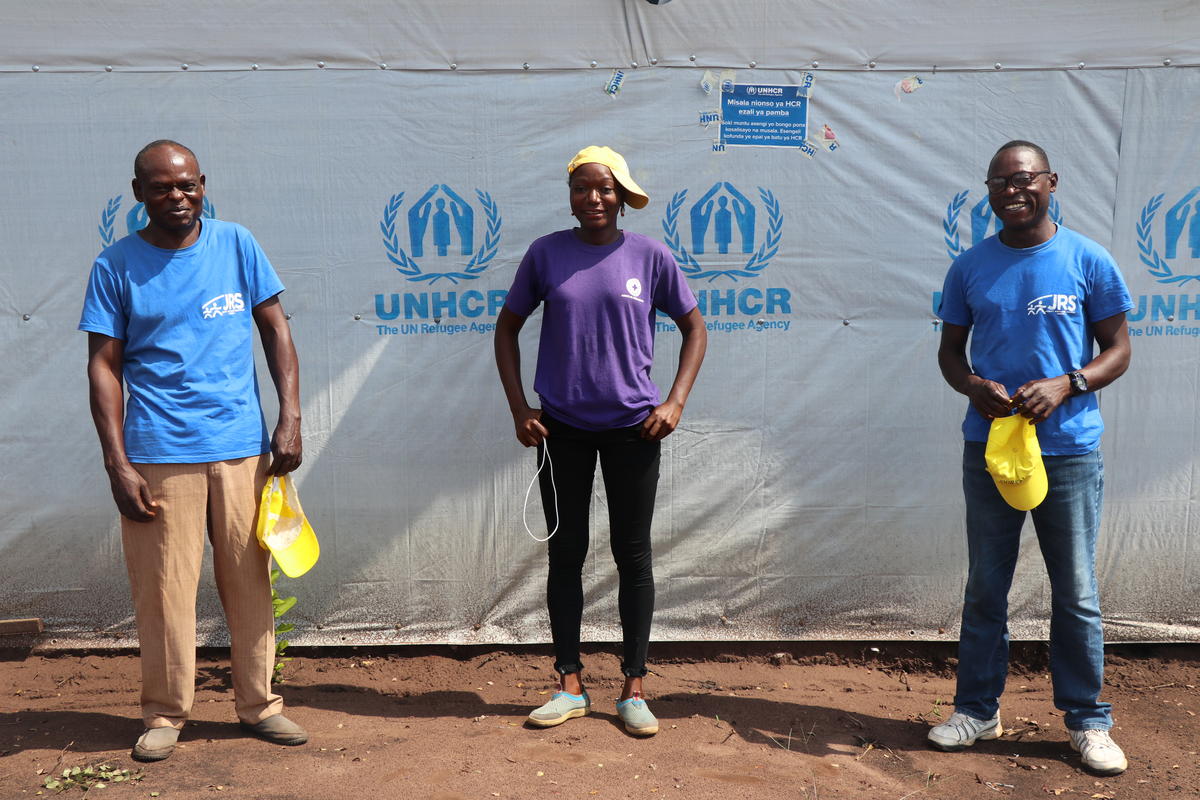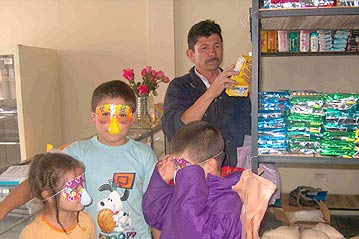Micro-credit scheme gives refugees in Angola chance to end dependency
Micro-credit scheme gives refugees in Angola chance to end dependency

VIANA, Angola, Jan. 4 (UNHCR) - For Ngunza Izala Henri, the introduction of a micro-credit scheme that helps refugees in Angola to run a small business has meant something very basic - he can now feed his family every day.
Henri, a Congolese refugee living in Angola since 1978, is one of the first to benefit from the small-loan programme to boost his micro-business and break the chain of dependency that has affected the majority of the 14,000 refugees in the country, most of whom fled their home region of Katanga in Congo more than two decades ago.
His $140 loan has financed a modest business in which he and his wife sell phone cards for mobiles. "The micro-credit helped me to change a bit my financial situation. I can now buy bread on a daily basis, which was not possible before," he said.
The Livelihood Project is funded by UNHCR and implemented by the Canadian non-governmental organization Development Workshop (DW), which has worked in Angola since 1981 on civic education and poverty reduction in rural areas. The project officially started in August, and the first loans were issued in October.
To avoid falling into the same traps as previous failed schemes, DW ran a course for the first 300 beneficiaries on how to manage the credit and the importance of repayment. It is also training a local NGO, NNARP, to take over the future management of the scheme, which is expected to expand to other refugees in rural areas once this first stage is established.
Initial loans vary from $100 to $150, and are targeted at small businessmen and women based in the 6,000-strong refugee settlement of Viana, on the outskirts of Luanda. Although most are well adjusted in the country, they still find it difficult to make a living. For many, the chief way of earning a living comes from selling goods from door to door.
At first, there was opposition to the project because the loan was seen as too small and had to be repaid in 16 weeks. In addition, DW came up with an idea called 'solidarity group.' Lenders are divided into groups of eight or nine who are responsible for each others' debts - if Henri does not repay, his debt is shared and must be repaid by the other eight refugees in the group.
But after seeing the impact on people such as Henri - who is managing to repay his debt and put bread on his table every day - many of those who initially rejected the scheme are changing their minds.
"We expect to have more than 300 refugees by the end of the year," says Fadario Lusati, a micro-credit officer for DW.
Timely repayment is vital if the project is to work. "It is aimed at active refugees, not those who are vulnerable," stresses Rolando Villanueva, projects manager of DW. "To qualify, refugees have to show that they are able to exercise some profession or commercial activities. The money received has to be reimbursed."
Some find it challenging - for example, Kasanga Petronie, who believes that four months is not enough time to repay a loan for her tailoring business. "I have to buy clothes, to sew and to sell, which sometimes takes me over two weeks." But she said she could stay in the project if the terms become more generous.
Henri is not worried. He is confident he will pass to the second phase of the micro-credit scheme and get a bigger loan. That becomes possible when he manages to repay all the US$ 140 he has received, plus 10 percent interest, by the time his four months are up.
An increase in the credit level is not automatic, stresses Lucie Manirambona, coordinator of micro-finance at DW. Manirambona has been working with the scheme since it began - originally for Angolans - in 1999. Henri will have to prove his business has grown, and provide 10 percent of the loan up front as a deposit.
"That has not yet happened with any of the refugees, but we have seen cases of people who started up in the micro-credit scheme and managed to open bank accounts and show banks they had a reliable credit rating with us," said Manirambona.
By Malungo Muana Germano in Viana, Angola









